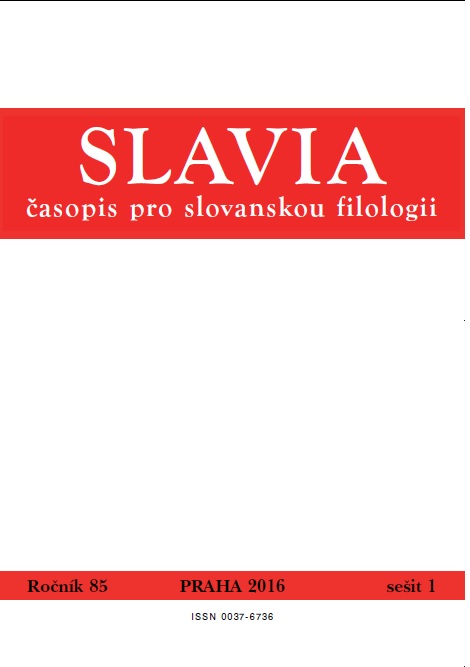Блаженные спутники: монументальная уединенность, колебание, „классика“ и „маньеризм“ в ранних русском и болгарском модернизмах
Blessed Companions: Monumental Solitude, Hesitation, “Classics” and “Mannerists” within Early Russian and Bulgarian Modernisms
Author(s): Yordan LjuckanovSubject(s): Theory of Literature
Published by: AV ČR - Akademie věd České republiky - Slovanský ústav and Euroslavica
Keywords: phases/faces of early modernism; classicality and mannerism; high and low; Penčo Slavejkov; Kiril Hristov; Dmitrij Merežkovskij; Valerij Brjusov
Summary/Abstract: This study trials a scheme of detailed periodisation of early modernism in literature, making use of the Bulgarian and Russian early modernisms as of exemplary cases. It attempts to concord a number of theoretical frameworks: Pierre Bourdieu’s theory of the literary field; Russian formalist and post-formalist (Lotmanian) vision of literary everyday writers’ conduct as of an extension of the artistry of literary works proper; the old art-history sensitivity for and notion of repetition- deficient-in-invention, expressed through such terms as “mannerism” and “epigonism”; Matei Calinescu’s concept of “faces of modernity” and Peter Bürger’s idea of the phases of modernity. The four writers under observation are Penčo Slavejkov, Kiril Hristov, Dmitrij Merežkovskij, and Valerij Brjusov.
Journal: Slavia - časopis pro slovanskou filologii
- Issue Year: LXXXV/2016
- Issue No: 1
- Page Range: 30-46
- Page Count: 17
- Language: Russian

